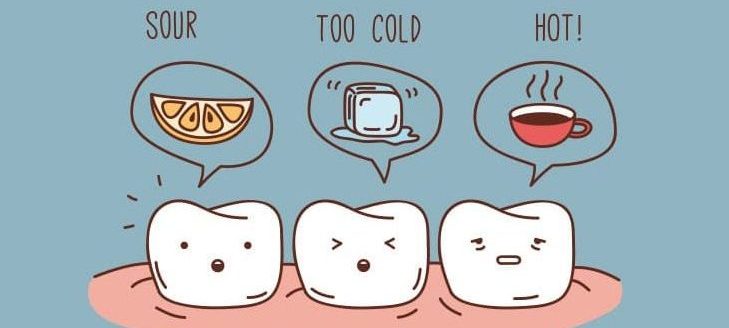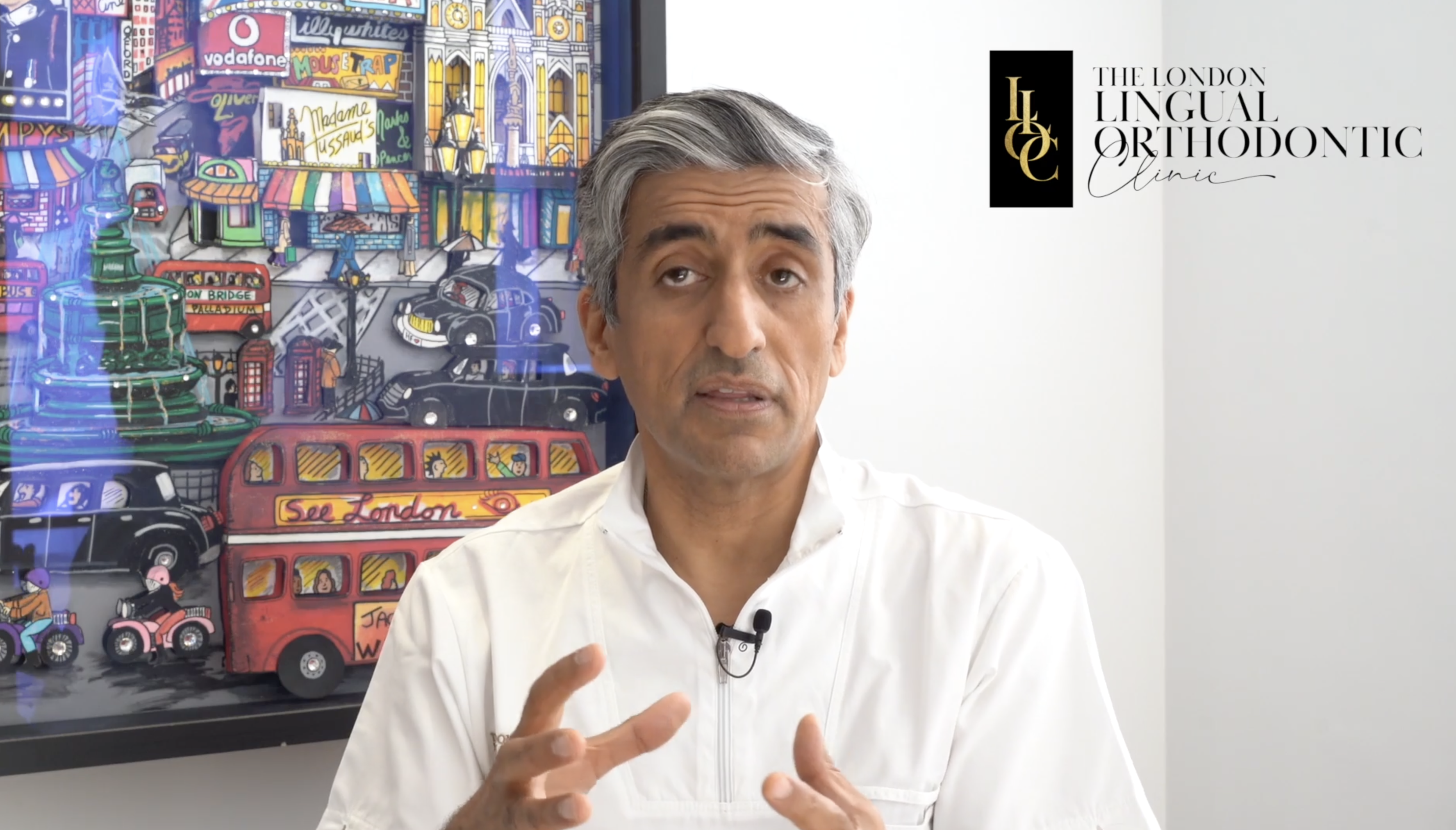This blog is an attempt to explain the causes of sensitive teeth and to describe what can be done to alleviate the symptoms. We are probably all more aware of tooth sensitivity due to promotional campaigns for specialist products and pastes! But it’s best to be sure that sensitivity is the cause of the discomfort you are experiencing – it could have other causes. For instance, dental decay and leaking fillings can cause discomfort but are not related to sensitivity. It’s a good idea to see a dentist if you have sensitivity symptoms to get the correct diagnosis.
So what is tooth sensitivity?
Also known as dentinal hypersensitivity, it’s usually caused by wear and tear of the tooth and by gum disease. It can occur if you clench and grind your teeth which will lead to teeth being worn down over time. (Find out more about tooth wear here.) If you have a cracked or chipped tooth you can also get sensitivity symptoms. Any tooth can be affected. The pain source is often around the gumline, where the enamel has worn away. The enamel is the hard outer coating of the tooth. Receding gums, another by-product of over-zealous brushing, can cause tooth enamel to be eroded and lead to sensitivity. What happens is that the layer below the enamel, the dentine, becomes exposed. The dentine contains lots of tiny tubules which connect the outside of the tooth to the pulp or nerve centre. Inside these tubules is fluid. When you eat something hot or cold, the fluid gets disturbed and moves towards the nerve endings thereby causing a short stab twinge or discomfort that is commonly experienced as sensitivity. If you eat something very hot or cold, sweet or sour, the tubules carry the sensation to the nerve centre of the tooth and you can experience a short stab or twinge of discomfort.
How to treat sensitive teeth
Nature has devised one of the best remedies for sensitivity and this is saliva. It has a neutralising quality and maintains a healthy balance of acid and alkaline in the mouth, helping to keep the teeth and gums healthy. If you frequently consume food and drinks which are high in sugar or with a high acidic content, the saliva in the mouth does not get the opportunity to neutralise these acids and this is when tooth enamel can start to erode.
Dentine is softer than enamel and susceptible to decay and being worn away by aggressive brushing. However, the saliva can remineralise the dentine surface, placing a physical barrier between temperature and the nerve. There are other products which can block the tubules, such as sensitivity toothpastes. Fluoride washes and varnishes can be very effective and sometimes your dentist will use a bonding or filling material to seal the tubules. If your saliva is not working effectively, which can happen with certain medications, your dentist will suggest ways in which you can maintain a healthy pH in the mouth.
If you are in any doubt about the cause of your discomfort, then talk to your dentist. It is important to get the right diagnosis and the right cure too.
In summary, don’t brush your teeth too hard, don’t consume too much sugar, especially between meals and if you think you are suffering from sensitivity, talk to your dentist.














